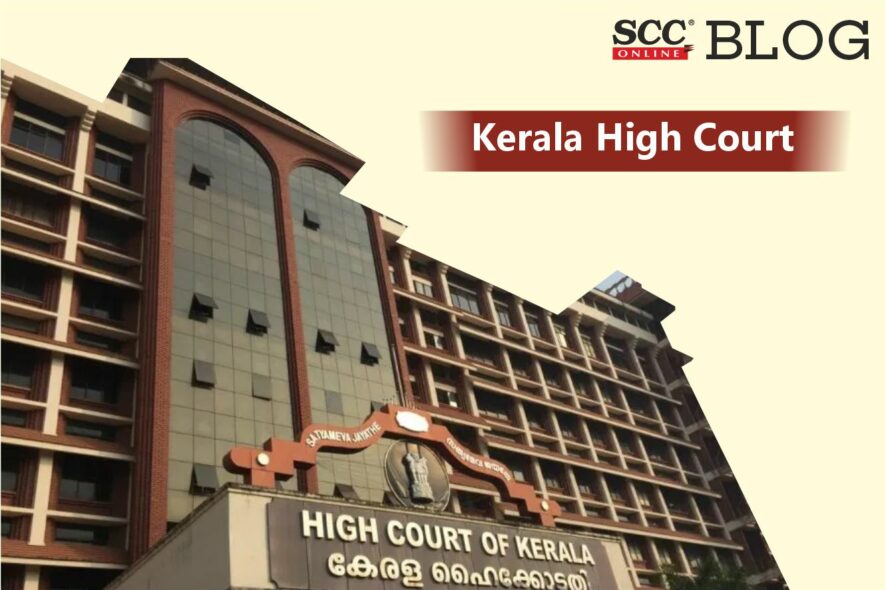Kerala High Court: In a petition challenging the order dismissing the application filed under Section 33(2)(b) of the Industrial Disputes Act, 1947 (‘the Act’), Mohammed Nias C.P., J. has observed that the respondent has not properly considered the application under Section 33(2)(b) and it is necessary to question and remit the matter to the authority, to consider the application afresh after hearing the management and the workmen and to take a decision in accordance with law.
In this case, the petitioner, a company having tea and rubber estates in Kerala, initiated disciplinary proceedings against the respondent/workman, and finding him guilty in the enquiry report and therefore, a punishment of dismissal was imposed upon him. Further, the petitioner filed an application under Section 33(2)(b) of the Act in view of the pendency of the industrial dispute, however, the said application was rejected stating that in view of the pending dispute raised at the instance of the Union, the application filed by the petitioner cannot be allowed.
The Court viewed that the order cannot be sustained as the consideration mandated under Section 33(2)(b) has not been done while rejecting the prayer for approval. The Court took note of the ruling in John D’Souza v. Karnataka SRTC, (2019) 18 SCC 47, wherein it was held that “the enquiry contemplated under Section 33(2)(b) of the Act was summary in nature to see prima facie if the domestic enquiry was fair and just, and whether the employee was given a reasonable opportunity in compliance with the principles of natural justice and the object behind such a provision is to ensure that pending adjudication of a dispute, the employer should not act with vengeance leading to further industrial dispute”.
The Court observed that Section 33 of the Act, as it stood prior to 1956 amendment, virtually prohibited a change of service conditions to the prejudice of workman or discharge or dismissal of the workman during the pendency of any conciliation proceedings or any other proceedings before a Labour Court or Tribunal in respect of an industrial dispute. Further, the object was obviously to protect the workman concerned against victimization for having raised an industrial dispute and further to ensure adjudication of pending industrial proceedings in a peaceful atmosphere.
It was also observed that after the amendment of Section 33 in the year 1956, there is a clear distinction between the action proposed to be taken by the employer regarding any matter connected with the dispute on one hand, and action proposed to be taken regarding a matter not connected with the dispute pending before the authority.
Moreover, it was viewed that Section 33(1) deals with matters connected with the pending dispute and imposes a ban on change of service conditions or discharge or dismissal except with the express permission in writing of the authority before which the proceeding is pending and Section 33(2) deals with the alterations in the conditions of service as well as discharge or dismissal of workman concerned in any pending dispute where such alteration or such discharge or dismissal is in regard to a matter not connected to the pending dispute. Thus, it is a permission seeking approval of the action already taken.
The Court further viewed that the limited enquiry contemplated under Section 33(2)(b) of the Act is only to find whether a proper domestic enquiry has been held to prove the misconduct attributed to the workman and whether he has been afforded reasonable opportunity to defend himself in consonance with the principles of natural justice, therefore, the object of such an enquiry is to lift the veil to find out that there is no hidden motive to punish the workman or the act is an abortive attempt to punish him for a non-existing misconduct. Further, the Proviso to Section 33(2)(b) affords protection to a workman to safeguard his interest and it is a shield against victimization or unfair practice by the employer during the pendency of an industrial dispute when the relationship between them is strained.
[Midland Rubber Produce Company Ltd v. Uthayasuriyan, 2022 SCC OnLine Ker 4842, decided on 30.09.2022]
Advocates who appeared in this case :
Counsel for Petitioner: Advocate M. Gopikrishnan Nambiar
Advocate P. Benny Thomas
Advocate P. Gopinath
Advocate K. John Mathai
Counsel for Respondent: Advocate Thomas Abraham
Government Pleader Unnikrishna Kaimal



